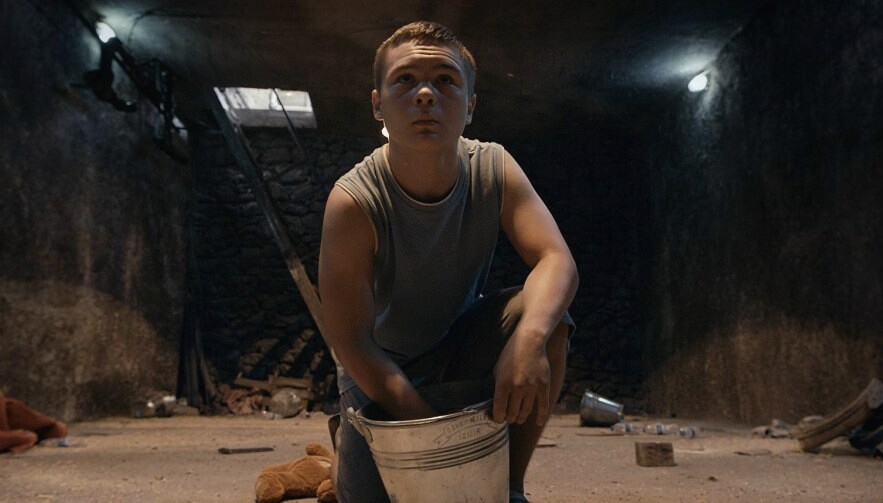
Minor protagonists don’t have it very easy in cinema. Particularly if the film demands them to wipe off their lovable cinematic foibles, the actors tend to goof up (probably) in absence of conceivable references. As a matter of fact, it is not easy for us to hold our collective sighs as we sit through the embitterment process of teenager Gaza (Hayat Van Eck) in Onur Saylak’s debut film Daha (More).
Reared, not raised, by Ahad (a menacing Ahmet Mümtaz Taylan), the fatefully named Gaza is a permanent housekeeper and warden at his father’s booming business of refugee smuggling in a coastal town in Turkey. A bright youngster enamoured by the solar system, Gaza is furtively preparing for an entrance test to a school in Istanbul. Not in agreement with his son’s dispensable dreams, the father decides to suck out every drop of innocence from the ambitious Gaza’s being. What also awaits is an entirely different track that focuses on the young boy’s interactions with the refugees.
Like several noted films from the region in the recent past, Daha’s central focus is on the rising refugee crisis in Syria and adjacent nations. Here they arrive in clandestine groups and stay for days in Ahad’s underground attic. What is startling is the fact that these migrants in question are not intimidated one bit. They are slightly chaotic but far from being belligerent. There is shelter, food, and, above all, safety. The listless group happily enjoys their transit time with notable bonding and even short music gigs being performed in each others’ company. Imagine how all of it happens in an underground shell that’s barely breathable. They scribble all over the walls – visuals of bright sun, homes, palms – everything that symbolizes life and their long-lost happiness.
ALSO READ: 25 World Cinema Titles from 2017 That You Mustn’t Miss
One who mints truckloads of cash in this illegal business, Ahad wants his son to increase his responsibility stakes rather than just guarding the shell. Gaza’s toughening up process is alarming – some deliberate by his father, others spontaneous by time. He never quite gets his cruel father’s point of view but somewhere hopes for a normal childhood – of knowledge, friendships and even a relationship. Talking about the latter, Daha also poignantly etches out an unlikely yet tender love story onto the main plot.
Screenplay penned by Günday and Onur Saylak creates a striking balance between spaces – claustrophobic and expansive. Saylak’s deft staging skills make it furthermore effective. Certain conventional layers as Gaza washing off his involuntary wickedness repeated in regular intervals and so do a voice-over by his adult version. We never end up meeting the grown-up Gaza and we aren’t told what could have happened to him either. The threshold of his accumulated bitterness takes a timely test in the end and we are left practically in awe. While tiny discrepancies persist in several departments as editing and acting, Daha (More) paints a dreadful picture wherein a living human being is assigned a diminutive monetary value. For some, it is survival and for the rest it is sheer business.
Played with suitable rookie-ness and vulnerability, our hearts go out to Van Eck’s studied portrayal of Gaza. The human trafficking bit aside, cinema such as this compels us to research about the bright, brimming youngsters in war-hit nations. Few of whom are at the fringe of turning adults. Won’t their thought processes matter? If at all we pretend to care for what the United Nations calls ‘world peace’.
Indeed a stupendous directorial debut this is, Onur Saylak.
Rating: ★★★★

